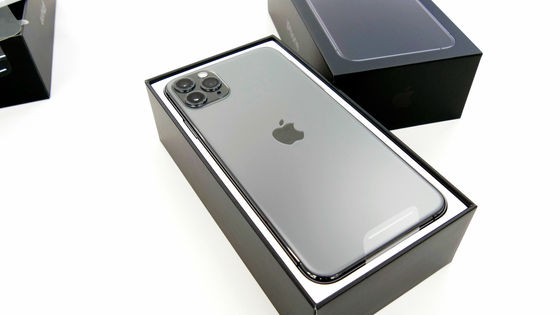There is a 1 billion yen `` lab for unlocking iPhone '' in New York City

by
In a lab in New York City, USA, two computers are engaged in the task of 'unlocking a suspect's smartphone.' The research facility is a cybercrime research facility that cost $ 10 million (about 1.1 billion yen).
Unlocking the iPhone: Inside the government's war with Apple
https://www.fastcompany.com/90453437/inside-the-10-million-cyber-lab-trying-to-break-apples-iphone
New York City has a $ 10 million cybercrime lab to crack the iPhone
https://appleinsider.com/articles/20/01/21/new-york-city-has-a-10-million-cybercrime-lab-to-crack-the-iphone
In an investigation into the San Bernardino shootings in the United States in December 2015, the FBI requested that Apple unlock the device to find out what iPhones the criminal had. However, if Apple develops a tool that can unlock the iPhone at the request of the government, it is `` like creating a master key that can easily access millions of terminals '', which is Apple Rejected the government's request for nothing more than breaking the security credibility that it had built.
Apple rejects government request to `` make a back door that can avoid iPhone encryption ''-gigazine

By Erickson Alves
Since then, Apple and the FBI have fought a fierce legal battle over unlocking the iPhone. Finally, Apple replied that 'unlocking the iPhone is impossible' unless you know the passcode.
Apple also says that `` iPhone unlocking is impossible '', it is clear that you can not access the data in the terminal unless you know the passcode-gigazine

By Perspecsys Photos
In the case of the iPhone, the passcode to lock the terminal can be set to 4 digits or 6 digits, but there are 10,000 ways for 4 digits and 1 million ways for 6 digits. If you enter the passcode incorrectly six times in a row, the terminal will be locked for 1 minute, and after each mistake the terminal will be locked for a longer time, and finally unlock the iPhone if you do not connect to iTunes You will not be able to do so. Therefore, unlocking iPhone is very difficult.
Apple has also designed the iPhone so that the number of passcode attempts remains limited, even if the memory chip is removed from the device. Therefore, if the investigating agency tries to obtain useful information for the investigation from the criminal's iPhone, it must examine the criminal's private life and guess the passcode from birthdays, anniversaries, zip codes etc. You.
Or you have to pay more than 100 million yen to hackers to unlock iPhone like FBI.
It turns out that the FBI paid more than 100 million yen to hackers for unlocking the iPhone-gigazine

So, in New York City, a cybercrime research facility was set up at a cost of $ 10 million to unlock the smartphone of a crime suspect, and research is being done on unlocking the iPhone here. At the research facility, the iPhone is stored in a Faraday cage designed to block electromagnetic waves. This is because iOS users can remotely delete data stored on iCloud and devices. Storing your iPhone in a cage that can block electromagnetic waves prevents your iPhone from accessing remote servers or responding to wipe requests.
Until five years ago, the unlock rate for smartphones seized by New York City was 52%. However, at the time of writing the article, it seems that the unlock rate has risen to 82% due to the result of a cyber crime research facility that cost $ 10 million.
'The issue of unlocking the iPhone has had a huge impact on our work right away, and the fact that we can't unlock and lose access to the device,' said Cyrus Vance Jr., district attorney in New York City. The evidence cannot be obtained, 'he said, pointing out the importance of research on unlocking the iPhone being conducted at cybercrime laboratories.
However, each time Apple releases a new major version of the OS, unlocking the iPhone is becoming increasingly complex. At cybercrime research facilities there are cases where it takes years to crack one iPhone, so there are many cases where the iPhone was finally unlocked successfully at the stage where the case was resolved and a trial was being done is.

Apple was also working on an option to encrypt the iCloud backup end-to-end. iCloud backups contain sensitive data such as contact information, photos, and text used by iMessage and other messaging apps, but Apple has requested that the FBI leave the data in a readable form, Discarding plan.
In addition, there is data that Apple is actively providing iCloud data to the FBI. According to Apple, U.S. government authorities have requested more than 6000 iCloud backup data in the first half of 2019, and Apple has responded to 90% of the requests. Still, the law enforcement agencies were not satisfied with Apple's response, and a research institution such as a cybercrime research facility in New York City was set up.
However, the cybercrime research facility in New York City is just a large example, and it seems that there are also investigative agencies using cracking tools like Cellebrite , which became famous for unlocking the iPhone.
Related Posts:





